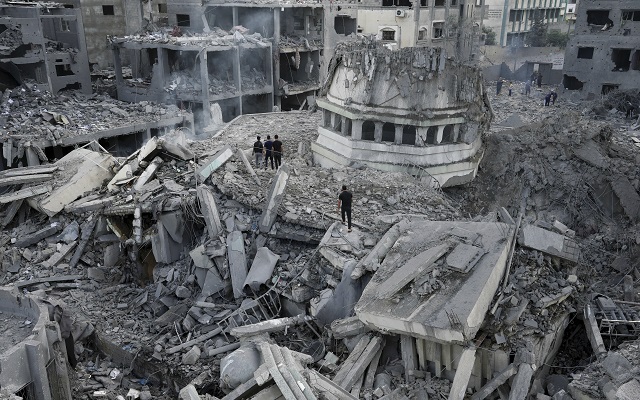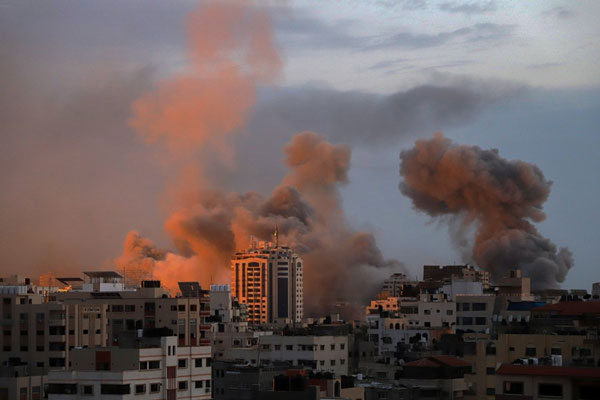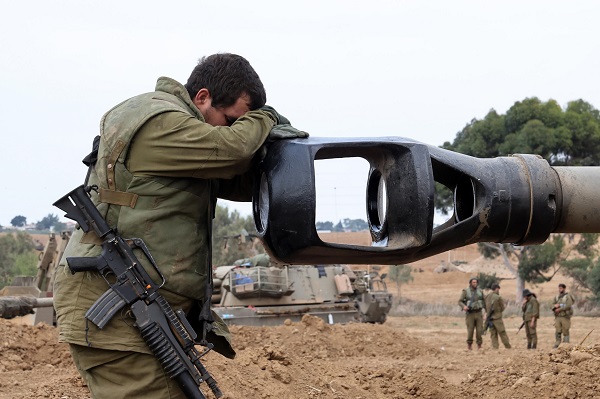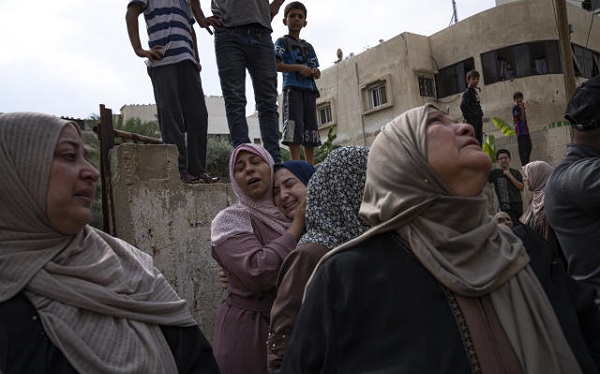
What you need to know
ANALYSIS | AGENCIES | On the morning of Oct. 7, the Palestinian militant group Hamas carried out a massive attack on Israel that was nearly unprecedented in its scale and scope. Hamas fired rockets from Gaza and infiltrated its operatives across the border, where they engaged in firefights at seven different locations in southern Israel, according to the Israel Defense Forces (IDF). Hundreds of Israelis have been killed, and numbers keep rising, with over a thousand wounded. Hamas has also reportedly taken dozens of Israelis hostage, releasing video to support its claims.
Initial information suggests that the attack has no precedent in recent Israeli history. The IDF said approximately 2,200 rockets were launched in the initial barrages, making it the largest rocket attack against Israel since Hamas took control of Gaza in 2007. The number of rockets launched was an order of magnitude larger than the attacks at the beginning of the 2014 and 2021 crises. Hamas also appears to have been quite innovative, using paragliders among other means to enter Israel by surprise. The infiltration is particularly devastating for Israel due to the lives lost and the hostages taken.
Israeli Prime Minister Benjamin Netanyahu declared, “We are at war,” and launched Operation Iron Swords, conducting airstrikes in Gaza and calling up reservists. Al Jazeera reports that the Israeli response has already claimed hundreds of lives in Gaza, with many more deaths sure to come.
The situation is chaotic, and the fighting is ongoing the ultimate numbers of dead, wounded, and hostages may be far greater than initial reports. Undoubtedly, early information is incomplete, exaggerated in some areas and understated in others, and in some cases plain wrong. But several observations stand out.
1. Hamas was at a dead end
Hamas has governed Gaza since seizing power there in 2007, and it has always wrestled with the inherent tension between governing the area and maintaining its bona fides as the leader of the anti-Israel resistance camp among Palestinians. Hamas has done so in the face of Israeli and international opposition; tremendous economic pressure that Israel increases or eases to incentivize peace behavior from Hamas; and bitter efforts by its rival, the Palestinian Authority, led by Mahmoud Abbas.
For much of the last 16 years, Hamas’s leaders have tried to appeal to Palestinians by showing that they, not the PA, can better govern. And in some ways, they succeeded. Despite international economic isolation, Hamas provides services such as trash collection and law enforcement far more effectively than its PA predecessors in Gaza. Hamas also presented itself as less corrupt than PA leaders, not a difficult argument to make.
Yet Hamas sees itself as a resistance organisation and needs to be one politically. Part of this is because its record of governance of Gaza is spotty. Gazans lead difficult lives, with high unemployment and poverty abounding. Hamas’s ability to claim leadership based on the quality of ordinary Palestinians’ lives is limited.

At the same time, Hamas’s leaders see Israel as illegitimate and hostile. They believe that attacking Israel is justified and that, in the end, they can gain politically from doing so. They know that ordinary Gazans will pay a terrible price from the Israeli response, but they hope that the eventual political settlement will be in their favour.
Even if it is simply some variation of the status quo, they aim to gain political points (and by implication discredit the PA) by showing that they, not the PA, are standing up to Israel. They can also shore up support among more extreme elements of their own organisation and potential rivals such as Palestinian Islamic Jihad, which have chafed at what they see as the inaction of Hamas’s leadership.
2. The PA is caught in a Catch-22
The PA is caught in a political trap, wanting to see Hamas fail but unable to openly cheer for Israel. The PA claims to represent all Palestinians, a stance that is incompatible with Hamas’s independent power in Gaza. Abbas and other PA leaders have implicitly supported the isolation of Gaza, and its security forces have worked closely with Israel to crush Hamas in the West Bank, often acting brutally in the process. (Hamas has returned the favour, targeting PA supporters in Gaza.)
Today, the PA suffers from a legitimacy crisis. With the collapse of the peace process, the PA has no way to tell ordinary Palestinians that they have a path to an independent state. The unchecked growth of Israeli settlements in the West Bank, pogroms by Israeli settlers, and the open contempt many members of Netanyahu’s coalition have for Palestinians all increase the PA’s humiliation. Abbas himself is 87 years old and inspires little love among Palestinians. When he finally moves on, chaos may engulf the PA, with Hamas further increasing its influence.
For ordinary Palestinians, especially those who are not in the line of fire, Hamas’s attack may come with some sense of satisfaction, showing that Israelis will pay a price if they ignore Palestinian rights. Skepticism of peace talks and of Israeli intentions was high among Palestinians before the latest fighting. As a result, the PA, in public, will continue to criticise Israel, especially as large numbers of Palestinians die in the Israeli response, even though it hopes that Israel will crush Hamas and that the organisation will be even weaker.
3. The attack represents a massive Israeli intelligence failure
Although tensions had been high for some time, with warnings of a Third Intifada common, the scale of this attack caught Israel, as well as outside observers, by surprise. Israeli officials are already saying this was a massive intelligence failure.
Tactically, Israel was not prepared for Hamas’s ability to infiltrate fighters across the border and otherwise conduct a large-scale operation under Israel’s nose. The attack was also a surprise strategically, with Israel not prepared for such a dramatic escalation in fighting. And the timing of the attack will only compound the embarrassment, as it occurred almost to the day of the 50th anniversary of the surprise attack that began the 1973 Arab-Israeli War perhaps the biggest intelligence failure in Israel’s history.
Undoubtedly, investigations into this intelligence failure will seek answers as to why Israel’s famously skilled security services were caught by surprise. One reason may be a degree of complacency on the part of Israeli leaders. The Palestinian issue seemed to be successfully managed for many years, with Israel’s strong response to any flare-ups ensuring that Hamas quickly sought negotiations. Iron Dome and other systems seem to effectively protect Israelis from rockets and mortars from Gaza, while the barrier along the border with Gaza meant infiltration was seemingly impossible.

Israelis may also have underestimated Hamas’s counterintelligence, believing that the group would not learn from its past failures. Yet observers have long warned that the Palestinian situation was boiling over and that an unrepentant Hamas was seeking to turn the tables on Israel.
The attack with its high number of dead and wounded as well as numerous hostages also represents a major failure for the Netanyahu government. This is a particular problem in the Israeli political context, as Netanyahu has sold himself as a politician who can lead the fight against terrorism, force the Palestinians to bend to his will, and be tough on security.
The fighting comes at a time when Netanyahu is facing other significant challenges. His efforts to greatly weaken the power of Israel’s Supreme Court led to mass protests, and he himself has been indicted for bribery, fraud, and breach of trust. He has a core of supporters, but he cannot afford damage to his security credentials. In addition, he relies on an extreme right-wing government, with several openly racist ministers who have long called for tougher treatment of the Palestinians, especially when violence occurs.
4. The hostage drama will dramatically complicate the situation
In addition to the high death toll, one of the hardest things for Israel to handle will be the hostages whom Hamas has taken. In the past, Israel had bargained for years to return its people and even their dead bodies in the possession of its enemies. In 2011, for example, the Netanyahu government exchanged more than 1,000 prisoners for Gilad Shalit, an Israeli soldier captured by Hamas in 2006.
The hostages Hamas has taken will be powerful bargaining chips, as they give Hamas the option to respond to Israeli military action by threatening to harm or actually harming or killing the hostages. The hostages’ presence in Gaza also puts countervailing pressures on Israeli political and military leaders. The attack has already triggered a large-scale military response, but retrieving the hostages alive will be more likely with smaller-scale actions such as negotiations or Special Forces operations.
5. Expect a tough Israeli response
Israel’s initial response has involved targeting Hamas rocket and missile facilities in Gaza as well as trying to round up Hamas infiltrators and prevent additional militants from entering Israel a daunting set of tasks.

Israel will try to restore shreds of deterrence by showing Hamas that it will pay a heavy price for its actions. For now, the attack on Israel will be seen by many Israelis and Palestinians as a win for Hamas. Because the Palestinian group is so much weaker than Israel, its ability to strike and with such deadly effect is impressive, even if the Israeli response in the end is far more devastating. Israel prioritises deterrence, not only to stop Hamas from attacking but also to counter Hezbollah, Iran, and other adversaries, as its leaders believe that weakness on one front spreads to other areas.
When Israel fought Hezbollah in 2006, Hezbollah’s continued attacks and killing of more than 100 Israelis sent the message that the group could inflict serious harm on Israel, even if in the end Hezbollah and Lebanon suffered far more. Israel has struggled for years to restore deterrence against Hamas and continues to worry with good reason that it is falling short.
In addition to punishing airstrikes, the Israeli response may involve significant actions on the ground in Gaza. In the past, Israel has rightly regarded ground operations with caution despite calls by some Israeli leaders to deal with the Hamas problem once and for all. In the past, the more limited nature of the conflict allowed cautious leaders such as Netanyahu to stick to economic pressure and air attacks, minimising the risk to Israeli soldiers.
The scale of Hamas’s latest attack, however, creates enormous pressure for Israel to try to root out the organisation from Gaza—an almost impossible task given Hamas’s deep economic, religious, and social base there. At the very least, Israeli leaders will feel pressure to show successes, such as the deaths or arrests of senior Hamas leaders, as well as other visible, and visceral, signs that Israel is striking back. Hamas will be hit hard in the end, and ordinary Gazans will surely pay a heavy price.
This article was written by Daniel Byman and Alexander Palmer. Daniel Bymanis a senior fellow at the Center for Strategic and International Studies and professor at Georgetown University’s School of Foreign Service. His latest book is ‘Spreading Hate: The Global Rise of White Supremacist Terrorism’. Alexander Palmer is a research associate at the Center for Strategic and International Studies.
*****
Source: FP magazine
 The Independent Uganda: You get the Truth we Pay the Price
The Independent Uganda: You get the Truth we Pay the Price





